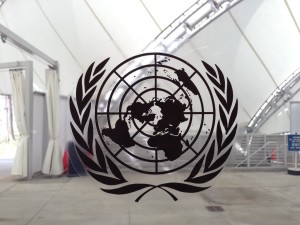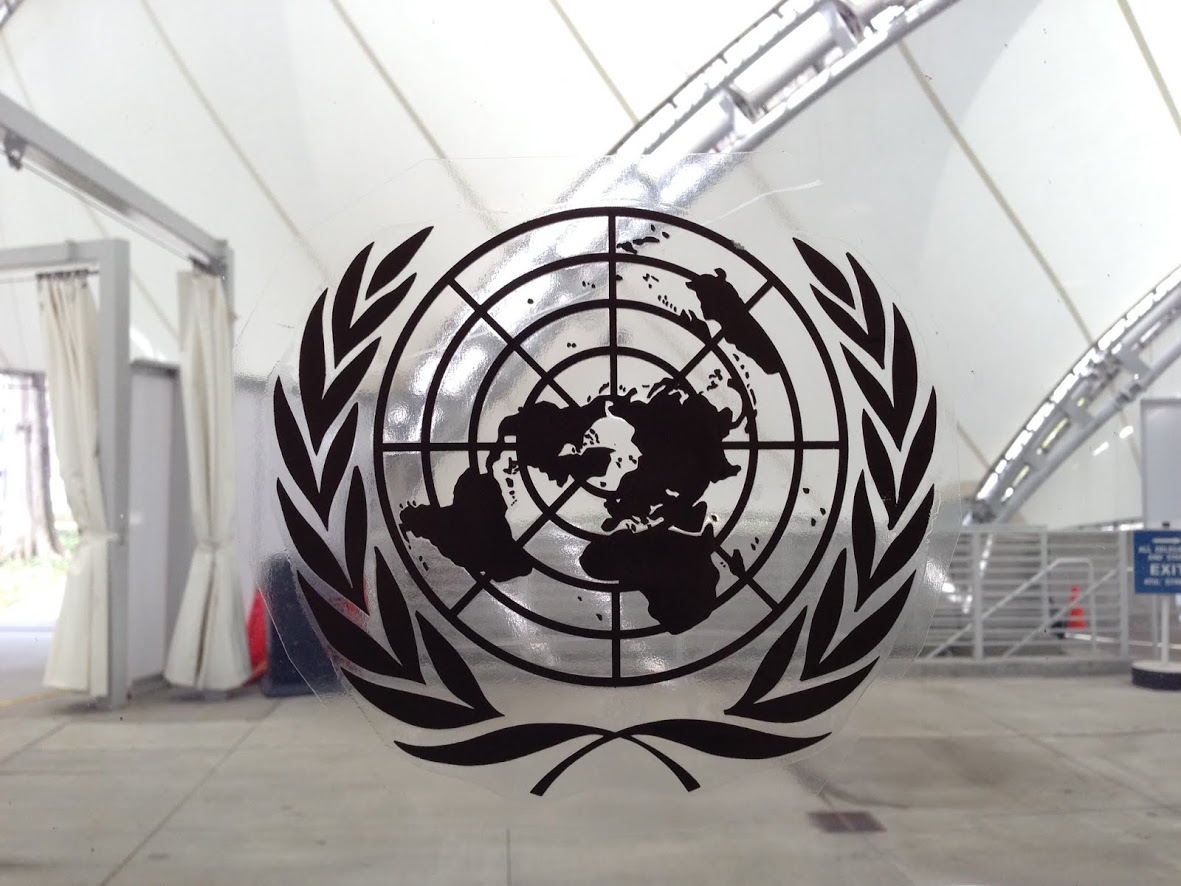
On April 22, junior and senior CSLADers visited the United Nations to receive a special briefing from Peter Schmitz, the Director of the Europe and Latin America Division in the Department of Peacekeeping Operations. Vivian Matz, Ethics teacher and Community Service Coordinator, created and teaches CSLAD (Community Service Learning Advocacy) at Fieldston. CSLAD students learn about social issues and advocacy, both in the classroom, in the field, and through volunteer work selected by students. One often hears about world peace, but not about how to help reach this seemingly unattainable goal.
A career diplomat, Mr. Schmitz oversees and participates in the organization’s peacekeeping missions in war-torn and blighted areas. Based on his experiences, Mr. Schmitz answered our questions for over an hour about his background, challenges, and goals.
Jack Spiegel (Form VI) asked: “Under what conditions does UN peacekeeping work most effectively?” “Peacekeeping is different from active warfare,” Mr. Schmitz replied. “With war, you have to fight to the end. Peacekeeping is not about that. It respects the equality of the parties in a conflict. It tries to help them by negotiation and mediation.”
Mr. Schmitz also provided his perspective regarding the ongoing conflict in the Ukraine, which he described as a “propaganda war [in which] Russia tries to delegitimize the government in the Ukraine.”
When Dylan Morris (Form V) asked how the UN coordinates its efforts in Afghanistan with US troops, Mr. Schmitz replied, “the UN mission doesn’t have any soldiers or police. The UN’s role was more to coordinate aid efforts and to also prepare the ground for a political settlement. It’s clear that the Taliban need to be part of some kind of solution in Afghanistan, and the key issue is to define a political way to bring in the Taliban.”
Mr. Schmitz explained the role of his peacekeeping operation in Cité Soleil, Haiti, where the United Nations helped strengthen Haiti’s National Police Force in order to manage gang violence, a serious political issue. “How to do you measure peace in a given country?” I asked him. Mr. Schmitz replied that negotiating compromises in the political sphere in times of conflict, ensuring stable governments, and minimizing poverty are key ingredients in avoiding armed combat and achieving peace.
Our visit was made possible by Gregory Grene, a first-year English teacher at Fieldston, faculty advisor of the Haitian Aid Club, and musician in a band (The Prodigals). Mr. Grene’s twin brother, Andrew Grene, died in the 2010 Haitian Earthquake while serving as a top advisor to the Haitian Secretary General. Andrew Grene and Mr. Schmitz worked closely together in Haiti. Today, Andrew Grene’s memory remains alive through the Andrew Grene Foundation that supports local education and microfinance in Haiti.
Our visit to the United Nations vindicated the purpose of CSLAD and Fieldston’s ethics-based approach to learning. By teaching us how the United Nations actively engages in communities around the world for social and political justice, our field trip to the UN inspired us to apply the real-world lessons of the UN peacekeeping initiatives to our everyday lives. The trip left us contemplating how we, as Fieldston students, might be able to play a role in creating peace and justice in the world.






